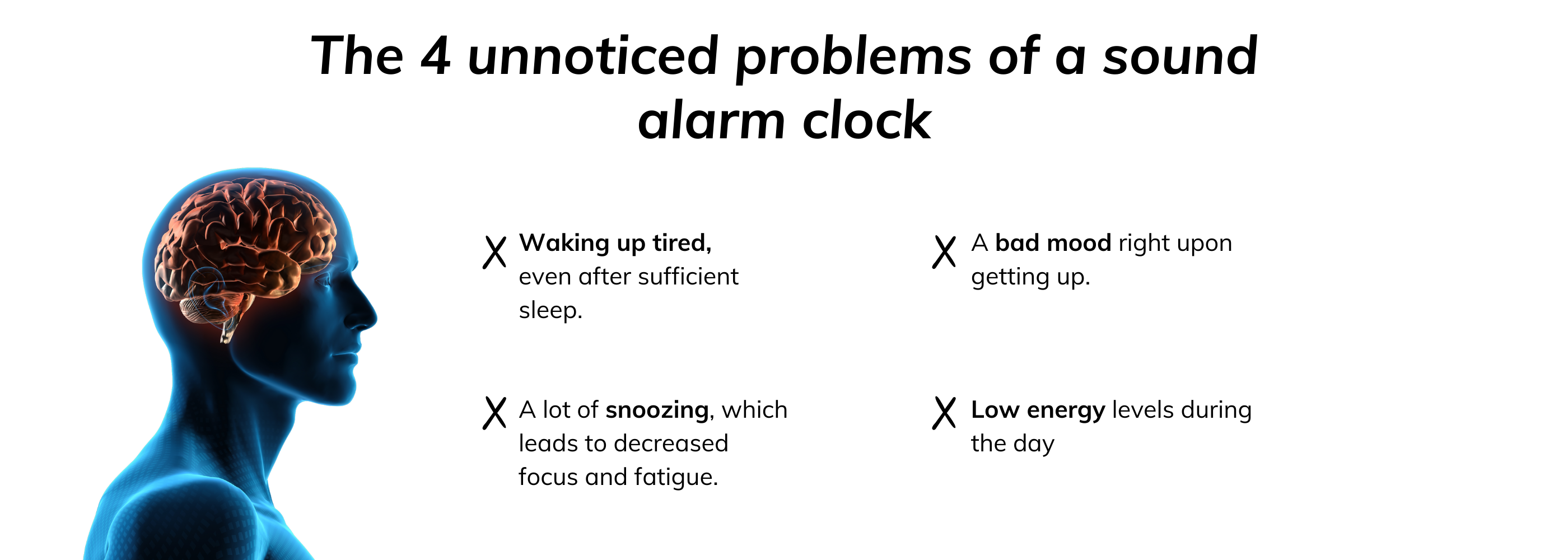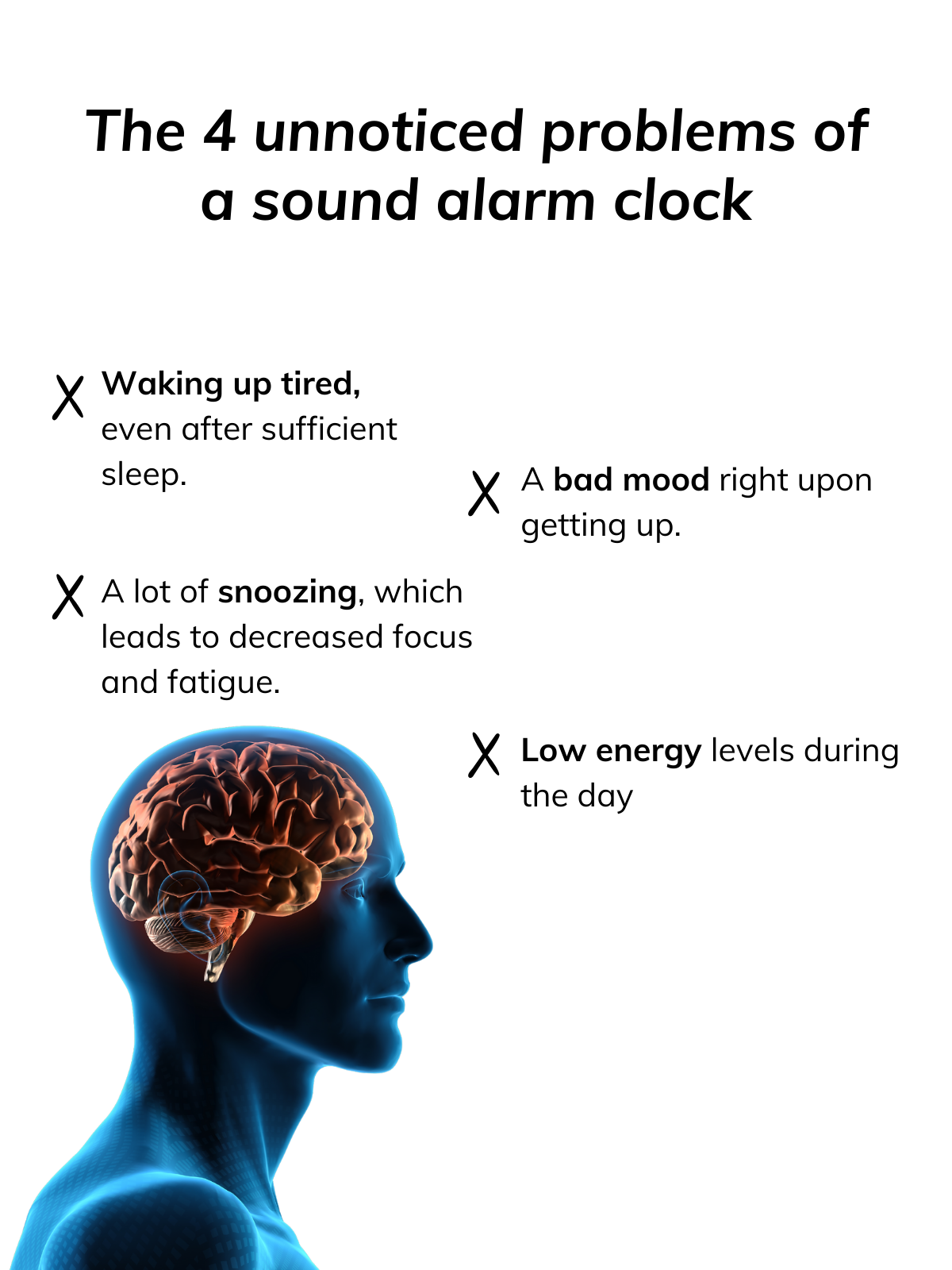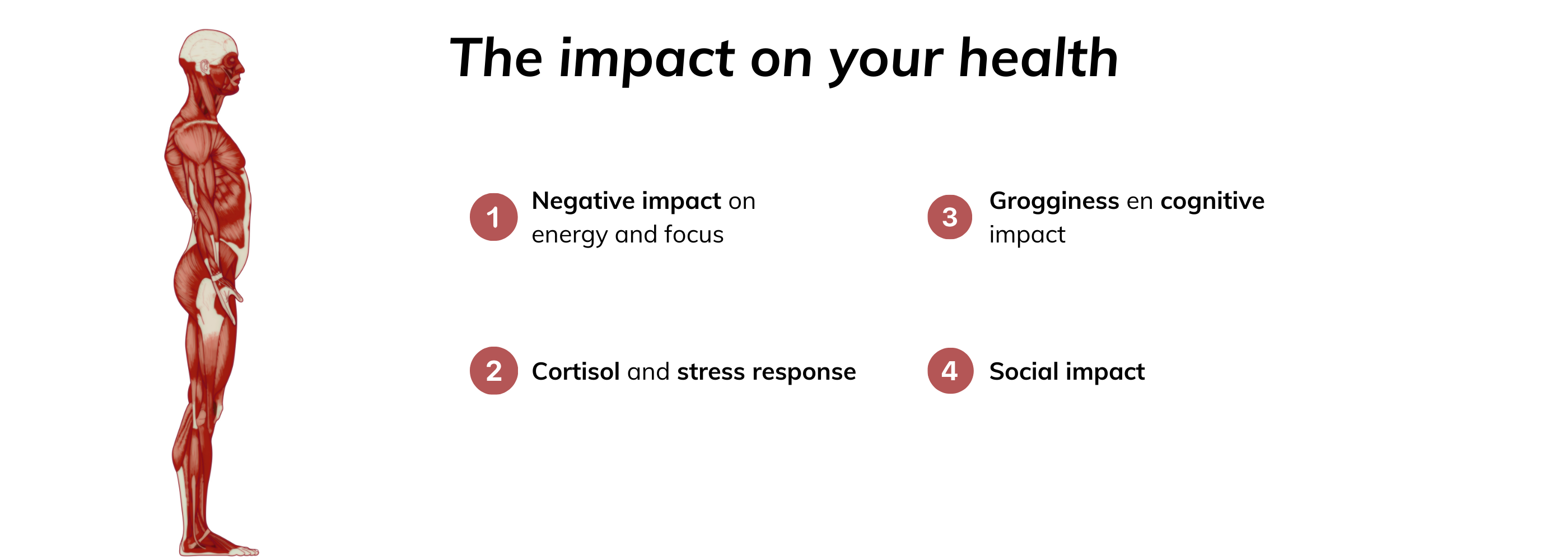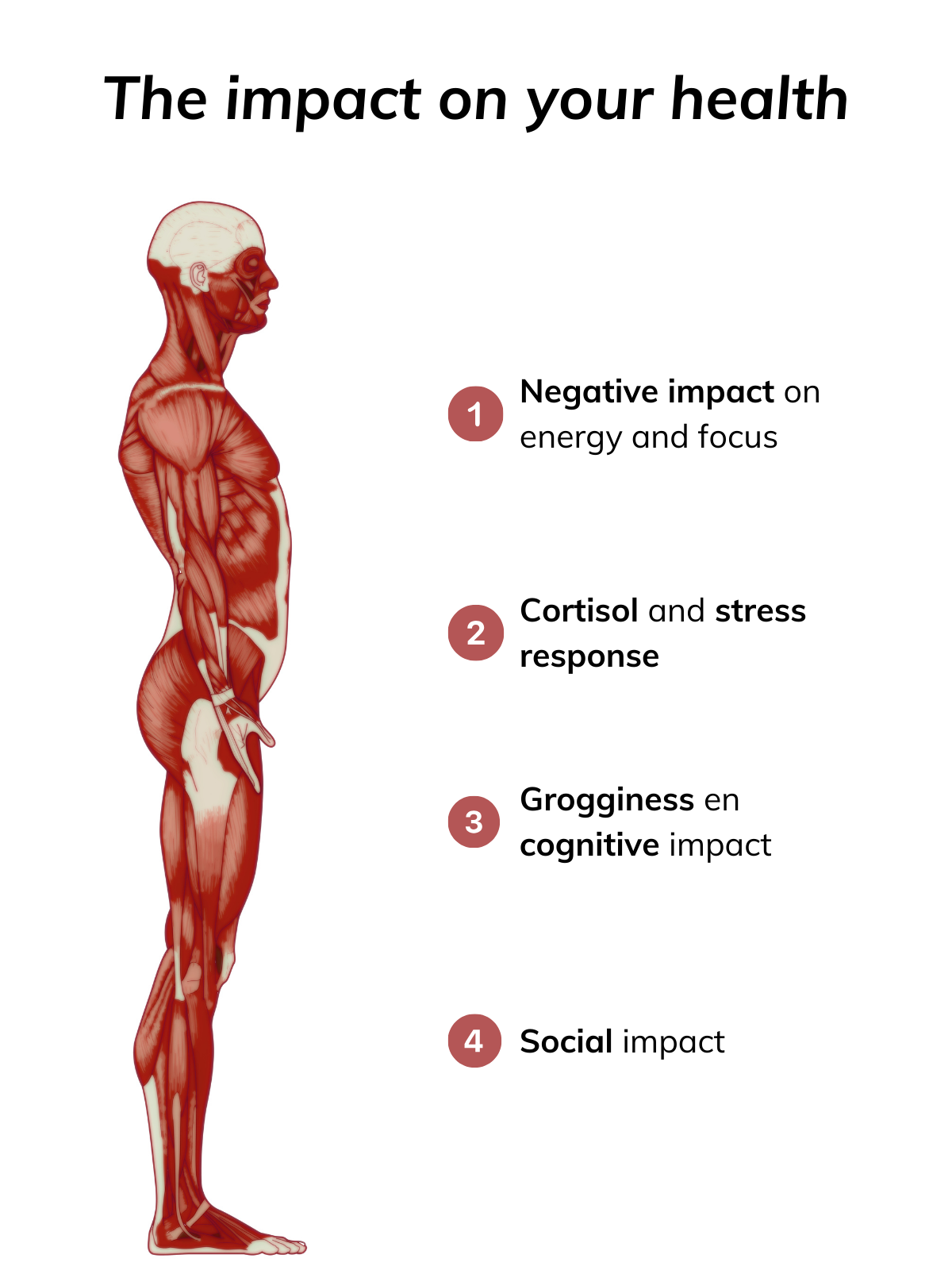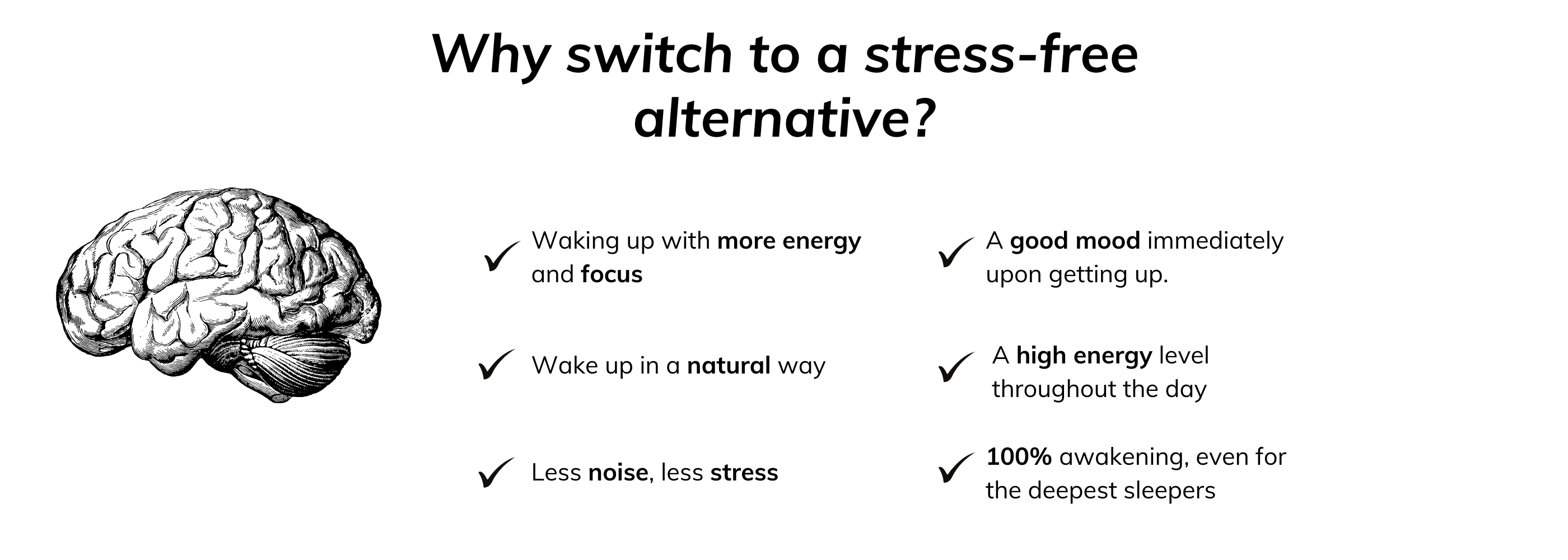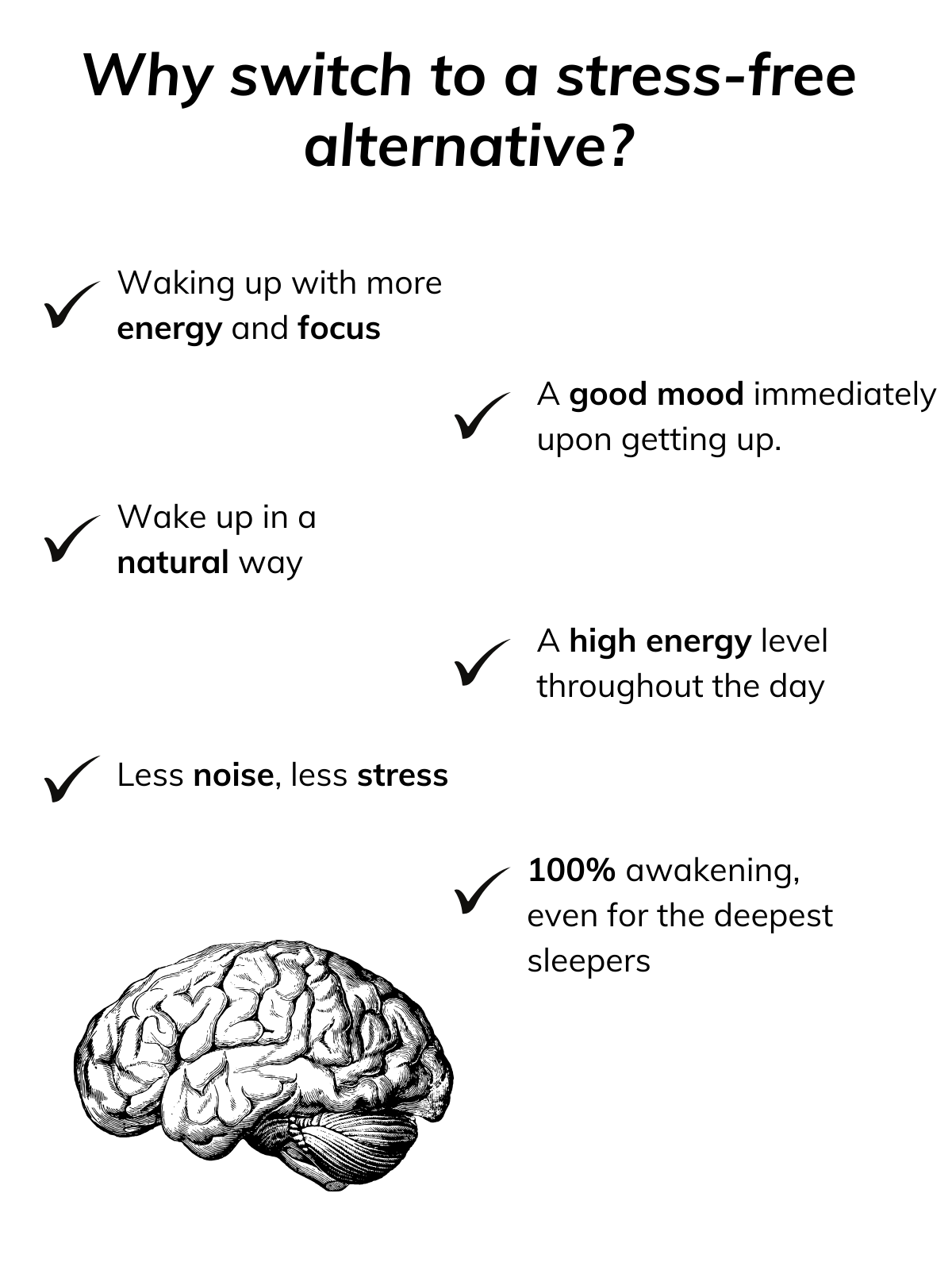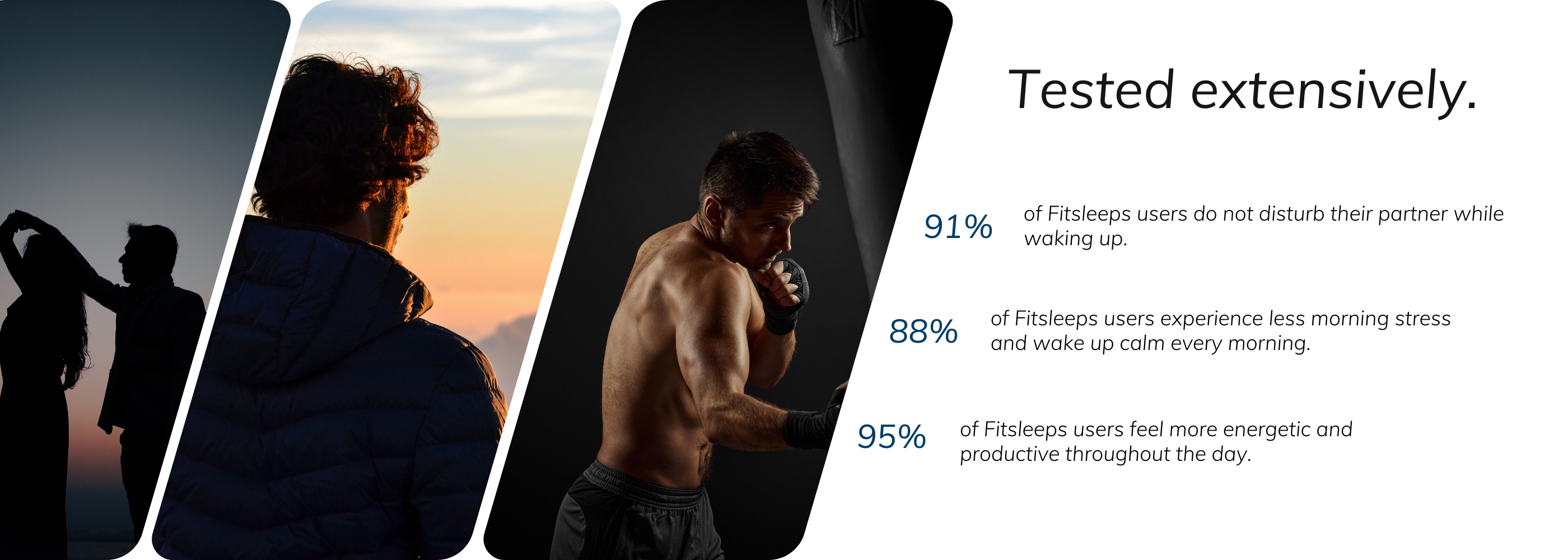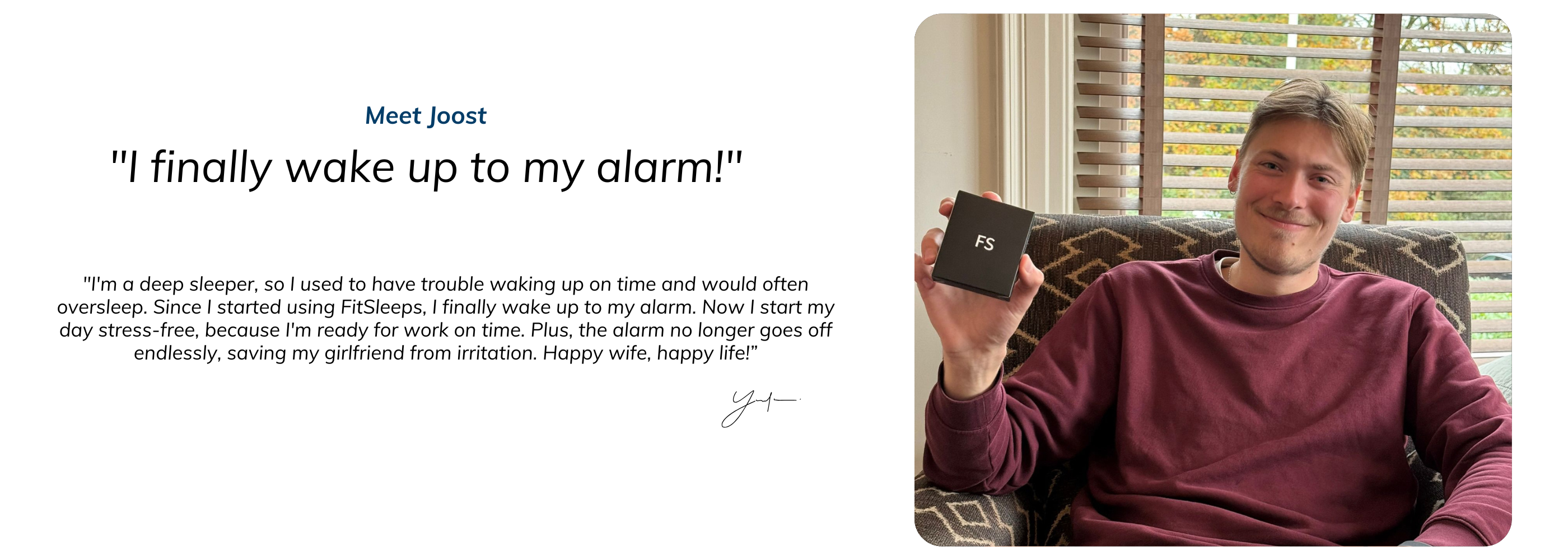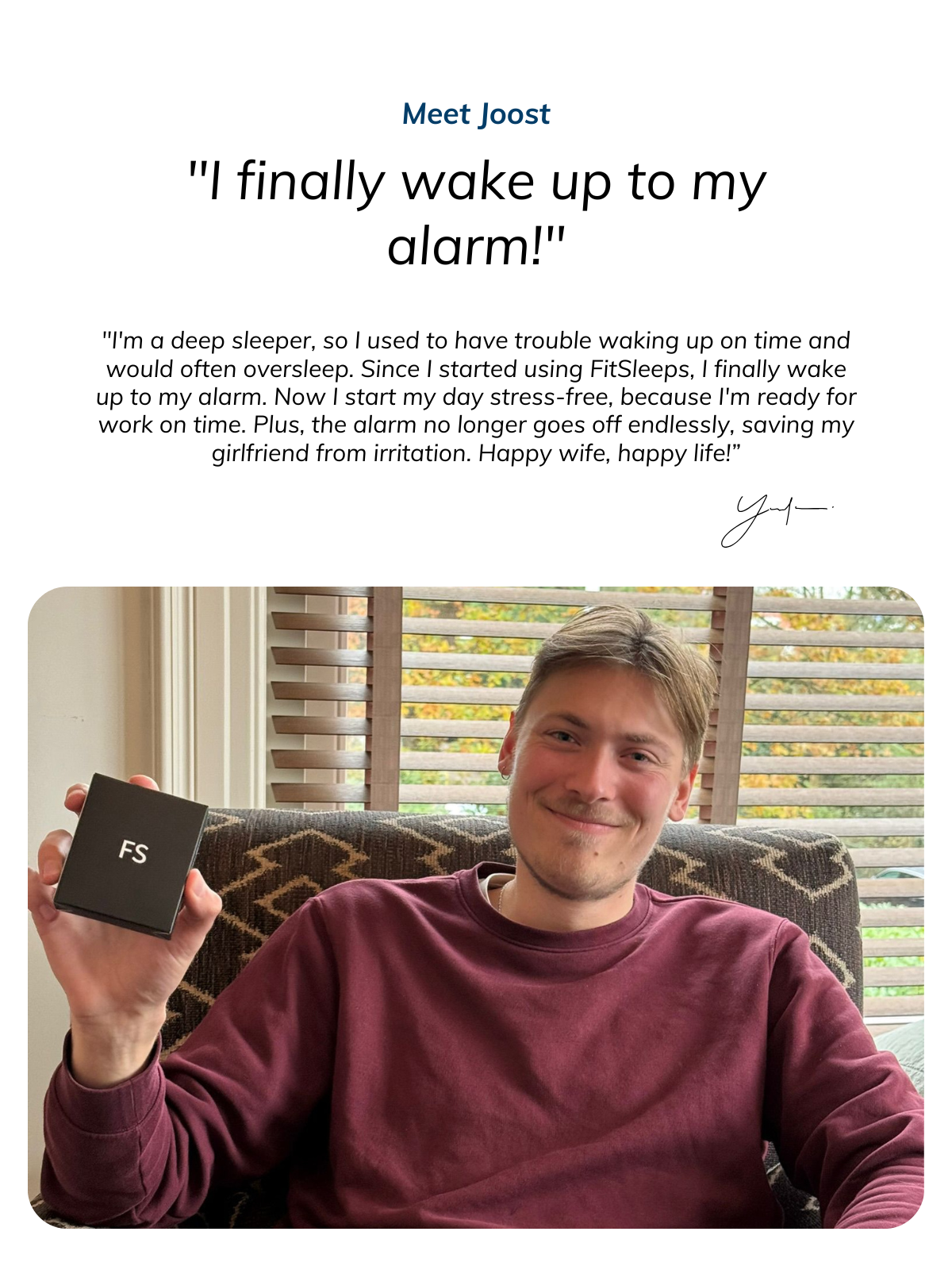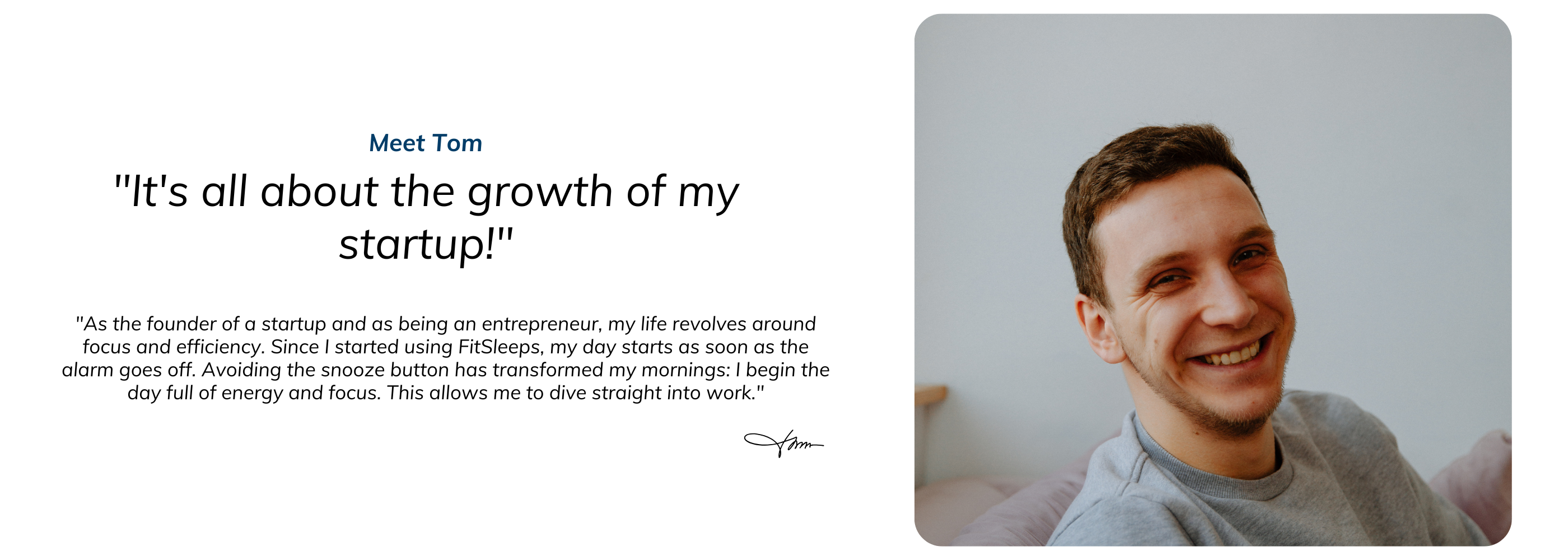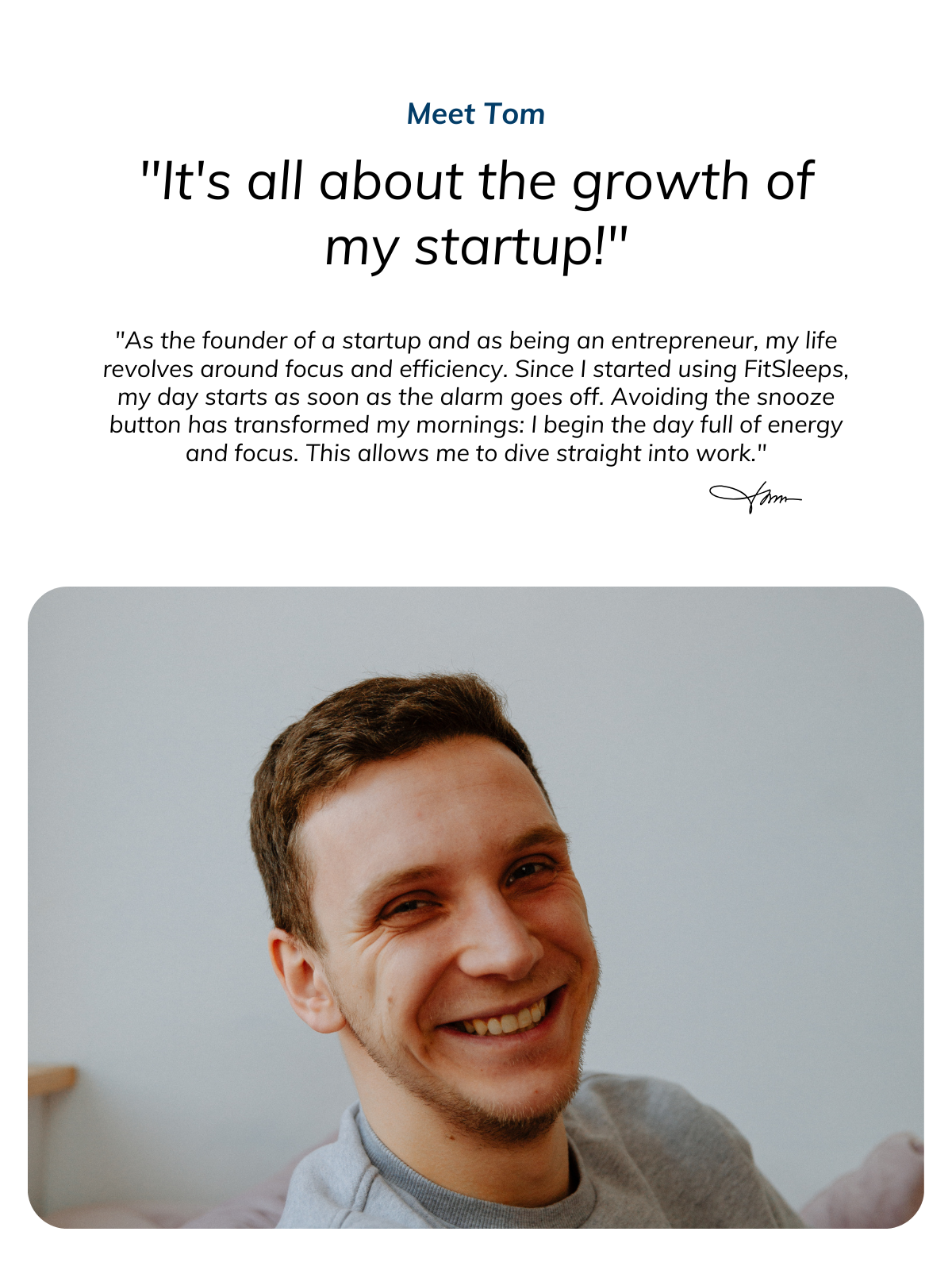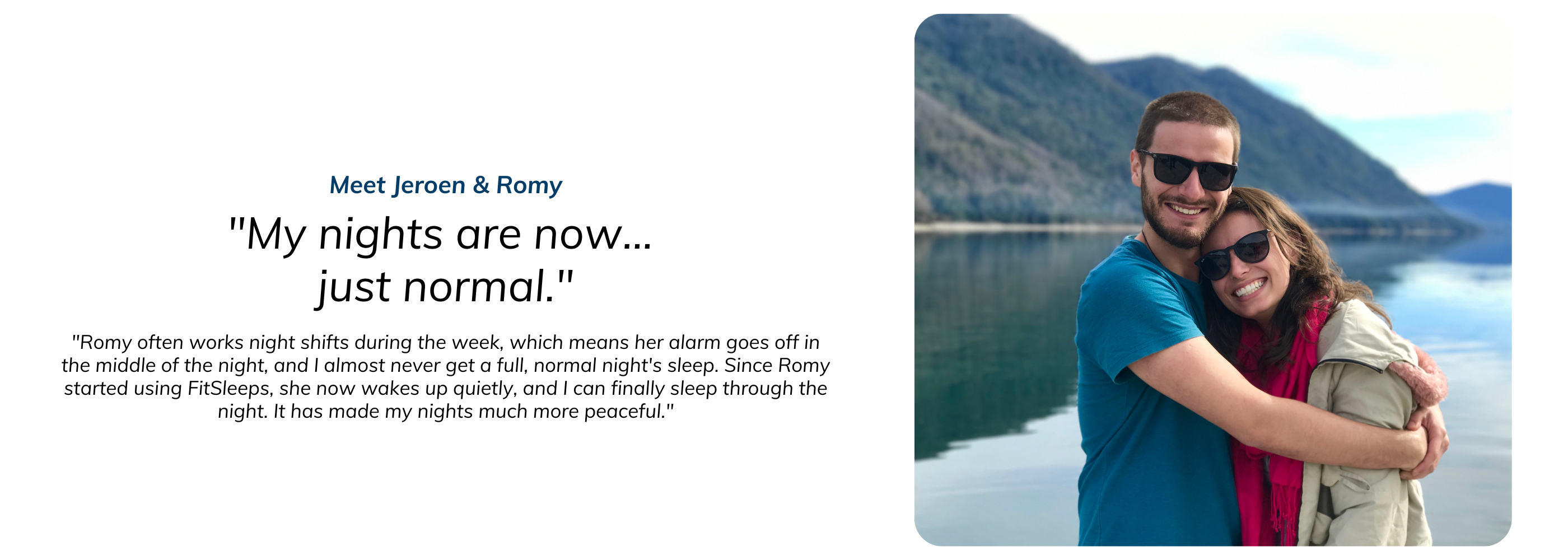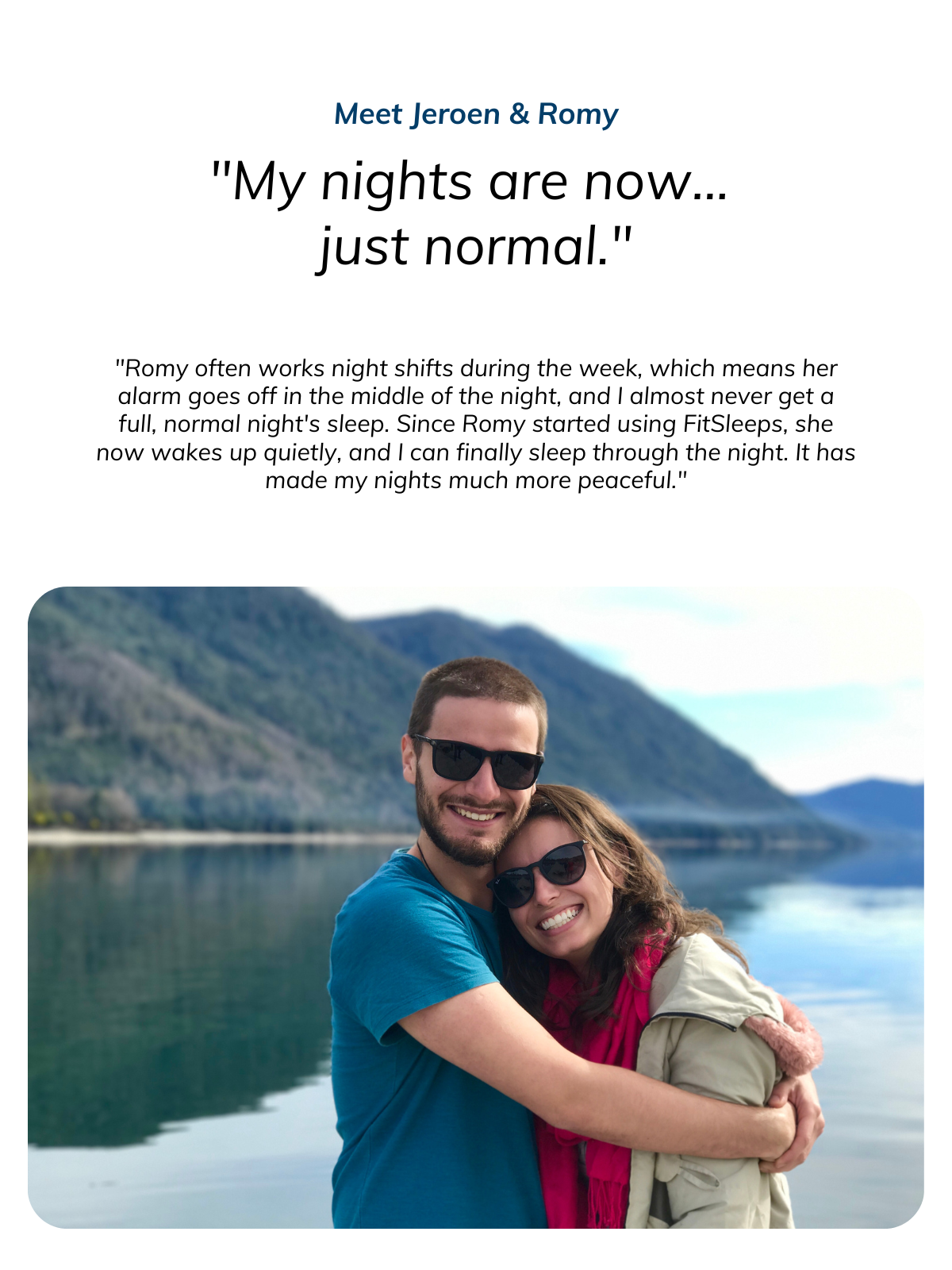Why Fitsleeps
The science behind vibrational alarm clocks
Sleep science continues to evolve. Each new discovery brings us closer to understanding how we rest, recover and wake up. At FitSleeps, we use these insights to design technology that supports a more natural way of waking. Together, we're building a future of better nights and more energetic mornings.
Do you wake up truly rested?
"Research shows that 8 out of 10 people wake up less well than they think, without realizing it."
Negative impact on energy and focus
Research shows that waking up to abrupt sounds, such as those from a traditional alarm clock, can trigger a stress response. Instead of easing into the day, you may feel startled and groggy, which can negatively affect your energy, mood and focus throughout the day.
Cortisol and stress responses
A study in Japan found that abrupt waking may trigger a stronger stress response compared with a natural transition to wakefulness. This is linked to the ‘fight-or-flight’ feeling that loud noises can activate in the early stages of sleep.
Grogginess en cognitive impact
Research shows that waking up during deep sleep (as often happens with loud alarm clocks) may temporarily affect memory and focus. This grogginess can sometimes linger for up to two hours after waking.
Social impact
Evolutionarily, our brain still interprets loud alarm sounds as potential danger. This can trigger a stress response that often leaves people feeling startled or irritated right after waking up.
Research shows that waking up to abrupt sounds, such as those from a traditional alarm clock, can trigger a stress response. Instead of easing into the day, you may feel startled and groggy, which can negatively affect your energy, mood and focus throughout the day.
A study in Japan found that abrupt waking may trigger a stronger stress response compared with a natural transition to wakefulness. This is linked to the ‘fight-or-flight’ feeling that loud noises can activate in the early stages of sleep.
Research shows that waking up during deep sleep (as often happens with loud alarm clocks) may temporarily affect memory and focus. This grogginess can sometimes linger for up to two hours after waking.
Evolutionarily, our brain still interprets loud alarm sounds as potential danger. This can trigger a stress response that often leaves people feeling startled or irritated right after waking up.
Waking up with more energy and focus
Studies show that a calm and gradual way of waking up may support better energy levels and sharper focus. By avoiding sudden wake-ups, you reduce disruptions in your sleep cycle, helping you feel more refreshed and alert throughout the day.
A good mood immediately upon getting up
Scientific research suggests that a quiet start to the day can positively affect your mood. Avoiding sudden, startling noises helps you feel more relaxed and upbeat when waking up.
Waking up naturally
Research shows that waking up naturally, without abrupt noises, provides a gradual transition from sleep to alertness. This gentle process helps you experience less stress and start the day feeling more calm and balanced.
A high energy level throughout the day
Research shows that a good start in the morning, free of stressful stimuli, can contribute to more stable energy levels throughout the day. By giving your body a chance to wake up naturally, you support a smoother rhythm and feel more balanced.
Less noise, less stress
Studies show that avoiding loud, abrupt noises upon waking can reduce stress. This not only lowers tension in your body, but also helps you start your day with more peace and clarity.
Studies show that a calm and gradual way of waking up may support better energy levels and sharper focus. By avoiding sudden wake-ups, you reduce disruptions in your sleep cycle, helping you feel more refreshed and alert throughout the day.
Scientific research suggests that a quiet start to the day can positively affect your mood. Avoiding sudden, startling noises helps you feel more relaxed and upbeat when waking up.
Research shows that waking up naturally, without abrupt noises, provides a gradual transition from sleep to alertness. This gentle process helps you experience less stress and start the day feeling more calm and balanced.
Research shows that a good start in the morning, free of stressful stimuli, can contribute to more stable energy levels throughout the day. By giving your body a chance to wake up naturally, you support a smoother rhythm and feel more balanced.
Studies show that avoiding loud, abrupt noises upon waking can reduce stress. This not only lowers tension in your body, but also helps you start your day with more peace and clarity.
Make the switch to a stress-free morning
The best for your health in the long term.


